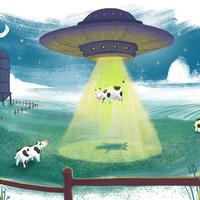Día 4 (parte 4)
Tag 4 (Teil 4)
Day 4 (part 4)
21.10 Como que la tormenta me ha dejado calado hasta los huesos, pido un vaso de vino tinto para entrar en calor.
|||||||промокшим|||кости|||стакан|||красное вино||||
|||tempête|||laissé|trempé|||os||||||vin rouge||se réchauffer||me réchauffer
|that||storm|||soaked|soaked|||bones|I ask||||wine|red||to warm up||warm
21:10 Uhr Da mich der Sturm bis auf die Knochen durchnässt hat, bitte ich um ein Glas Rotwein zum Aufwärmen.
21.10 It seems that the storm has left me soaked to the bone, I order a glass of red wine to warm up.
21.10嵐が私を骨に浸したままにしてしまったので、私は赤ワインのグラスを温めてください。
21.10 Ponieważ burza przemoczyła mnie do szpiku kości, proszę o kieliszek czerwonego wina na rozgrzewkę.
Con un palillo intento pinchar una tapa, pero ante mi asombro, las tapas salen corriendo por el mostrador.
||шпажка||проколоть||крышка||||удивление||крышки|||||прилавок
||cure-dent||piquer||amuse-gueule||||étonnement||tapas|||||comptoir
||toothpick||to poke||lid||in front of||amazement||tapas|||||counter
Mit einem Zahnstocher versuche ich, einen Deckel zu stechen, aber zu meinem Erstaunen laufen die Tapas aus der Theke.
With a toothpick, I try to poke a tapa, but to my astonishment, the tapas run away across the counter.
Avec un cure-dent, j'essaie de percer un couvercle, mais à mon grand étonnement, les couvercles courent sur le comptoir.
つまようじで蓋を刺そうとしますが、驚いたことに、タパスはカウンターを使い果たします。
Wykałaczką próbuję szturchnąć wieczko, ale ku mojemu zdumieniu wieczka spływają z blatu.
21.30 Me entretengo escuchando la conversación de los parroquianos.
|развлекаюсь||||||посетители
|m'occupe||||||habitués du bar
|I entertain myself||||||parishioners
21.30 Ich unterhalte mich mit dem Gespräch der Gemeindemitglieder.
21.30 I entertain myself by listening to the conversation of the regulars.
21.30教区民の会話を聞いて楽しもう。
El lenguaje de los seres humanos, sin descodificar, es trabajoso y pueril.
|||||||||трудный||детский
|||||||décoder||travailleur et enfantin||puéril
|||||||to decode||laborious||puerile
Die Sprache der Menschen ist ohne Entschlüsselung mühsam und kindisch.
The language of human beings, without decoding, is laborious and puerile.
人間の言語は、解読することなく、面倒で幼稚です。
Para ellos, una oración elemental como ésta
||||элементарное предложение||
|||phrase simple|||
|||sentence|elementary||
Für sie ein elementares Gebet wie dieses
For them, an elementary prayer like this
彼らにとって、このような初歩的な祈り
109328745108y34-19poe8vhqa9enf087qjnrf-09aqsdnfñ9q8w3r4v21dfkf=q3wyoiqwe=q3u9=853491926
|поэ||enf(1)||неизвестный символ|||r(1)|v(1)|||выбор||
|poe|non défini|enfiler|qjnrf|aqsdnfñ|||||inconnu||inconnu||
|by|ojos|in|ojnrf|aqsdnfñ|1||||dfkf||aslfd||and
109328745108y34-19poe8vhqa9enf087qjnrf-09aqsdnfñ9q8w3r4v21dfkf=q3wyoiqwe=q3u9=853491926
109328745108y34-19poe8vhqa9enf087qjnrf-09aqsdnfñ9q8w3r4v21dfkf = q3wyoiqwe = q3u9 = 853491926
(por favor, déme nueve kilos de manzanas) resulta ininteligible.
||||килограммов||яблок||неразборчиво
||donnez-moi||||||inintelligible
||give me||||||unintelligible
(bitte geben Sie mir neun Kilo Äpfel) ist unverständlich.
(please, give me nine kilos of apples) is unintelligible.
(私に9キロのリンゴをください)はわかりにくいです。
Hablan, en consecuencia, largamente y a gritos, haciendo señas y muecas horribles.
||следовательно|долго|||||жесты||гримасы|ужасные
||consequence|longuement|||||gestes||grimaces horribles|
||consequence|at length|||shouts||gestures||grimaces|horrible
Sie reden daher lange und laut und machen schreckliche Zeichen und Grimassen.
They speak, consequently, long and loudly, making signs and horrible grimaces.
その結果、彼らは長い間、すでに叫び、恐ろしい兆候としかめっ面をします。
Aun así, su capacidad de expresión es limitadísima, salvo en el terreno de la blasfemia y la grosería.
|||||||очень ограниченная|||||||богохульство|||грубость
|||||||limitless|sauf||||||blasphème|||grossièreté
|||||||very limited|except|||ground|||blasphemy|||rudeness
Trotzdem ist seine Ausdrucksfähigkeit sehr begrenzt, außer im Bereich der Obszönität und Unhöflichkeit.
Even so, their capacity for expression is very limited, except in the field of blasphemy and rudeness.
それでも、表現の能力は、冒とくと無礼の分野を除いて、非常に限られています。
21.50 Mientras reflexiono sobre este punto, el camarero me va llenando el vaso y cuando me doy cuenta, ya llevo medio litro de vino en el cuerpo.
|размышляю|||||официант|||наполняя|||||||||||литр|||||
|je réfléchis|||||serveur|||remplissant||||||m'aperçois||||moitié de||||||corps
|I reflect|||||waiter|||filling|||||||||||liter|||||
21.50 Uhr Während ich darüber nachdenke, füllt der Kellner mein Glas auf, und als ich es bemerke, habe ich bereits einen halben Liter Wein in meinem Körper.
21.50 While I'm reflecting on this point, the waiter is filling my glass and when I realize it, I've already had half a liter of wine in my body.
21.50 Alors que je réfléchis à ce point, le serveur remplit mon verre et avant que je ne m'en rende compte, j'ai déjà un demi-litre de vin dans le corps.
Empiezo a analizar la composición química del vino (ciento seis elementos, ninguno de ellos derivado de la uva), pero al llegar a trinitrotolueno decido abandonar la investigación.
Начинаю||||составление|химический состав|||||||||производный|||винограда|||||тринитротолуол||||
||analyser|||chimique|||||||||derivative|||raisin|||||trinitrotoluène||||
||to analyze||composition|chemical|||one hundred||elements||||derived|||grape|||||trinitrotoluene||||research
Ich beginne, die chemische Zusammensetzung des Weins zu analysieren (einhundertsechs Elemente, keines davon stammt aus der Traube), aber als ich bei Trinitrotoluol ankomme, beschließe ich, die Untersuchung abzubrechen.
I start to analyze the chemical composition of the wine (one hundred and six elements, none of them derived from the grape), but when I arrive at trinitrotolueno I decide to abandon the research.
私はワインの化学組成の分析を開始します(1600の元素、それらはブドウに由来するものではありません)が、トリニトロトルエンに到達すると、調査を中止することにしました。
El camarero me rellena el vaso.
|||наполняет||
|||remplit||
|waiter||refills||
Der Kellner füllt mein Glas nach.
The waiter fills my glass.
22.00 Me río sin causa y el parroquiano que está a mi lado me pregunta si tiene monos en la cara o qué.
|смеюсь|||||посетитель||||||||||обезьяны|||||
||||||habitué|||||||||il a|des singes|||visage||
|laugh|||||customer||||||||||monkeys|||||
22.00 Ich lache ohne Grund und der Kunde neben mir fragt mich, ob er Affen im Gesicht hat oder was.
22.00 I laugh without cause and the parishioner next to me asks me if he has monkeys in his face or what.
22.00 Je ris sans raison et le client à côté de moi me demande s'il a des singes sur le visage ou quoi.
Le aclaro que no me río de él, sino de una bobada que me ha venido a la cabeza de repente, sin saber cómo ni por qué.
|ясно||||||||||глупость||||пришла|||||||||||
|||||||||||bêtise|||||||||soudainement||||||
|clarify||||||||||nonsense||||come|||||suddenly||||||
Ich stelle klar, dass ich nicht über ihn lache, sondern über eine dumme Sache, die mir plötzlich in den Sinn kommt, ohne zu wissen, wie oder warum.
I clarify that I do not laugh at him, but a silly thing that has come to my head suddenly, without knowing how or why.
私は彼を笑わないことを明確にしますが、方法や理由を知らずに突然頭に浮かんだ愚かなことです。
Mi parlamento resulta algo confuso, sobre todo porque algunas frases las he dicho sin descodificar, y noto las miradas de sorpresa e incomprensión de los demás parroquianos.
|парламент|||непонятный||||||||||||||взгляды||||непонимание||||прихожане
|parlement|||||||||||||décoder||je remarque||||||incompréhension||||
My|speech|is||confusing||||||||said||to decode||I notice||looks||||misunderstanding||||parishioners
Mein Parlament ist etwas verwirrend, zumal ich einige Sätze ohne Entschlüsselung gesagt habe und die überraschten und missverständlichen Blicke der anderen Gemeindemitglieder bemerke.
My speech is somewhat confusing, especially because some phrases I have said without decoding, and I notice the looks of surprise and incomprehension of the other parishioners.
特に議会を解読せずにいくつかのフレーズを言ったので、私の議会はやや混乱しています。

